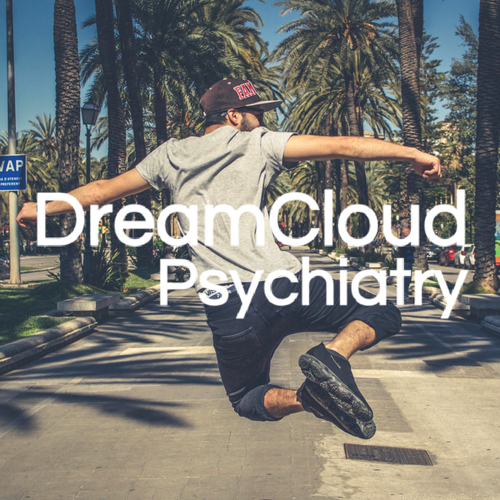
A startup telemedicine practice called DreamCloud Psychiatry, based in Miami Beach, Florida, is looking to change the way mental health providers deliver virtual medical services. Chris Lee, 35, a millennial entrepreneur and the company's founder, wanted to create a solution to what he calls "one of telemedicine's greatest challenges," which is "keeping it real."
"The most important part of a patient-provider relationship in telemedicine is maintaining a connection that feels real," says Lee. "If the patient feels disconnected in any way from their provider, they will most likely look for another one."
Lee, an NYU-graduate and psychiatric-mental health nurse practitioner, created DreamCloud Psychiatry with a specific target market in mind -- millennials. "Younger patients are obsessed with mental health. They are advocates for topics and current issues that are important to them. They care not only about perceptions, but also things like politics, entertainment, and social media, from a mental health standpoint. We put those things at the forefront."
His practice, which opened in 2017, has "redesigned psychiatric mental healthcare," according to its website. By using contemporary references to millennial culture, including Instagram-style visuals and language which speaks to a younger patient demographic, Lee has built a small private practice with roughly 300 patients in less than a year. He hired a registered dietician and a celebrity fitness trainer to help him build a mental health practice that would attract the next generation of patients. The company treats patients in Florida and New York.
DreamCloud Psychiatry is not the only brand moving swiftly in telemedicine. According to the American Telemedicine Association, over half of all US hospitals are using telemedicine to offer affordable, accessible healthcare to Americans. But Lee says that it's only halfway of a solution.
"We can't keep creating telemedicine practices that feel like big-box corporate companies. Millennials like small brands. They gravitate toward things that have an identity which they can relate to," says Lee. "Our patients connect with us through social media, they subscribe to our mailing lists, engage with blogs, and they feel most comfortable when they feel like they can communicate with us like they do with their peers. We do a lot of emailing and texting. We keep things current and efficient, but also strive to create a culture."
Victoria Huff, of The Thirty, identifies millennials as "a generation that has come to be defined by its relationship with mental health." And she's right. With over 88% of 18-29 year olds using social media platforms, the American Psychiatric Association conducted a survey earlier this year and found that millennials are by far the most anxious generation yet. According to the US Census in 2015, there are over 75.4 million millennials in the US.
A generation that has been shaped by impactful social issues including gun violence, suicide, terrorism, GLBT rights, and bullying -- millennials helped make "13 Reasons Why," a teen-suicide drama, the most popular show in America on a seven-day average per-capita basis in 2018. It's no surprise that millennials form the fastest-growing patient demographic in mental healthcare.
Meanwhile, U.S. healthcare providers struggle to meet the demand. Looking for a great psychiatrist is becoming increasingly difficult as the number of psychiatrists practicing in the US continues to dwindle. Forbes Magazine reported in March 2018 that of the 18,000 psychiatrists currently practicing in the US, 3/5 of them are over the age of 55 and likely to retire soon in the years to come.
There is no doubt that telemedicine will continue to increase in popularity and that many gaps in healthcare delivery have the potential to be filled via virtual medicine. With so many new and innovative telemedicine companies forming on a daily basis, which ones will millennials trust? According to Lee, "Ask younger patients what they value and give them credit for what means so much to them. That's keeping it real."






















